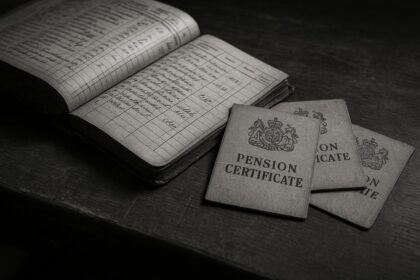The Criminal Cases Review Commission is under intense criticism for mismanagement and slow responses in handling wrongful conviction cases, prompting demands for new leadership and structural reform to restore public trust.
The Criminal Cases Review Commission (CCRC), tasked with identifying wrongful convictions, is under intense scrutiny for its management and operational practices. Operating from a modern office in Birmingham, the CCRC was established amid hopes of effectively addressing miscarriages of justice. However, recent revelations about its functioning have led many to question its efficacy and accountability in dealing with cases of wrongful imprisonment.
The Commission, which employs over 100 staff at a reported annual cost of nearly £10 million, has been plagued by a culture that many critics deem dysfunctional. A significant concern arises from the flexible and predominantly remote working arrangements instituted following the Covid-19 pandemic. This policy, initially considered progressive, has led to alarming inefficiencies. Staff reportedly visit the office only infrequently, and the chief executive, Karen Kneller—who earns a substantial salary of £130,000—admits to being present only a couple of days per season. This absence speaks volumes about the organisation’s dedication to oversight and responsiveness, particularly given the serious nature of the cases it handles.
The CCRC’s failures have been spotlighted by cases such as that of Andrew Malkinson, who spent 17 years in prison for a crime he did not commit. A formal inquiry into the CCRC’s handling of his case found it to be marked by “incompetence” and a lack of urgency. Malkinson had pleaded with the CCRC to conduct DNA tests that could prove his innocence—a request that tragically went ignored for more than a decade, causing him unimaginable suffering and loss.
Similarly, the recent acquittal of Peter Sullivan, who spent 38 years wrongfully convicted of murder and sexual assault, raises further questions about the Commission’s oversight. In both cases, the CCRC has been accused of dragging its feet in processing crucial evidence. As a result, critics such as former Justice Secretary Lord Falconer have characterised the organisation as “unled” and “generally regarded as useless,” leaving numerous innocent individuals languishing behind bars while injustice prevails.
The governance of the CCRC has also faced severe criticism. Helen Pitcher, the previous chair, was in Montenegro during significant developments regarding Malkinson’s case. Her part-time status, alongside multiple concurrent roles, has raised suspicions about potential conflicts of interest and whether she was adequately devoted to her position at the CCRC. Justice Secretary Shabana Mahmood has echoed calls for a full-time chair to ensure better leadership, implying that the current arrangements are no longer fit for purpose. Furthermore, the Justice Committee, reflecting on the findings from the inquiry, has urged for a complete overhaul of the Commission to combat the escalating scrutiny and public discontent.
In response to these issues, campaigners have argued for an urgent reform of the CCRC to restore confidence in a body integral to safeguarding justice. Initiatives to improve the organisation’s structure may include increasing transparency in decision-making processes, better recruitment practices, and stricter oversight of case management. Given the long history of public concern over wrongful convictions in the UK—epitomised by notorious cases such as the Birmingham Six—the CCRC’s evolution will be pivotal in shaping the future integrity of British justice.
As discussions on the CCRC’s future intensify, there is a prevailing consensus that substantial changes are necessary. Whether this results in new leadership, a reimagined operational framework, or a renewed commitment to the foundational purpose of the organisation—preventing miscarriages of justice—remains to be seen. Until these measures are taken, there exists a risk that the Commission will continue to grapple with inefficiencies that hinder its ability to function effectively, leaving many to question its legitimacy and commitment to justice.
Reference Map:
- Paragraph 1 – [1]
- Paragraph 2 – [1], [3], [4]
- Paragraph 3 – [2], [5]
- Paragraph 4 – [1], [3], [6]
- Paragraph 5 – [2], [4]
- Paragraph 6 – [1], [5], [6]
- Paragraph 7 – [3], [4]
Source: Noah Wire Services
- https://www.dailymail.co.uk/news/article-14743533/GUY-ADAMS-affront-justice-innocent-people-spending-decades-extra-prison-body-tasked-examining-cases-run-Britains-grotesquely-USELESS-quango-boss-130-000-year.html?ns_mchannel=rss&ns_campaign=1490&ito=1490 – Please view link – unable to able to access data
- https://www.theguardian.com/law/2023/aug/25/case-review-chief-was-in-montenegro-during-andrew-malkinson-revelations – An article from The Guardian discusses the Criminal Cases Review Commission’s (CCRC) handling of Andrew Malkinson’s case. It highlights that the CCRC’s chair, Helen Pitcher, was in Montenegro during significant revelations about Malkinson’s wrongful conviction. The piece also addresses concerns about the CCRC’s remote working practices and the potential conflict of interest due to Pitcher’s multiple roles, including chairing the Judicial Appointments Commission. The article emphasizes the need for reform and stronger leadership within the CCRC to effectively address miscarriages of justice.
- https://www.independent.co.uk/news/uk/government-obe-justice-secretary-dna-evidence-theresa-may-b2654820.html – The Independent reports on the UK government’s response to the Criminal Cases Review Commission’s (CCRC) failings in the Andrew Malkinson case. A review found that Malkinson, who spent 17 years in prison for a rape he did not commit, was failed by the CCRC, which could have exonerated him nearly a decade earlier. Justice Secretary Shabana Mahmood stated that CCRC chairwoman Helen Pitcher was ‘unfit to fulfil her duties’ and sought her removal. Malkinson called for a complete overhaul of the CCRC, stating that the body ‘obstructed my fight for justice’.
- https://www.theguardian.com/commentisfree/article/2024/jul/21/the-observer-view-criminal-cases-review-commission-needs-reform-and-a-new-leader – An editorial from The Guardian’s Observer discusses the need for reform and new leadership within the Criminal Cases Review Commission (CCRC). It criticizes the CCRC’s handling of Andrew Malkinson’s case, highlighting the failure to apply the correct test in determining whether Malkinson’s case should be referred to the court of appeal. The piece calls for a complete overhaul of the CCRC, emphasizing the importance of its role in preventing miscarriages of justice and the necessity for effective leadership and resources.
- https://www.irishnews.com/news/uknews/2023/08/19/news/calls_for_overhaul_of_part_time_chairmanship_of_criminal_cases_review_body-3544561/ – The Irish News reports on calls for the chairmanship of the Criminal Cases Review Commission (CCRC) to be made full-time. Lawyers representing exonerated prisoner Andrew Malkinson argue that the position is of ‘such central importance to the justice system’ that it should no longer be fulfilled part-time. The article highlights concerns about the CCRC’s handling of Malkinson’s case and the need for a complete overhaul of the organization’s leadership and culture to effectively address miscarriages of justice.
- https://www.theguardian.com/law/2023/aug/25/case-review-chief-was-in-montenegro-during-andrew-malkinson-revelations – An article from The Guardian discusses the Criminal Cases Review Commission’s (CCRC) handling of Andrew Malkinson’s case. It highlights that the CCRC’s chair, Helen Pitcher, was in Montenegro during significant revelations about Malkinson’s wrongful conviction. The piece also addresses concerns about the CCRC’s remote working practices and the potential conflict of interest due to Pitcher’s multiple roles, including chairing the Judicial Appointments Commission. The article emphasizes the need for reform and stronger leadership within the CCRC to effectively address miscarriages of justice.
- https://www.theguardian.com/commentisfree/article/2024/jul/21/the-observer-view-criminal-cases-review-commission-needs-reform-and-a-new-leader – An editorial from The Guardian’s Observer discusses the need for reform and new leadership within the Criminal Cases Review Commission (CCRC). It criticizes the CCRC’s handling of Andrew Malkinson’s case, highlighting the failure to apply the correct test in determining whether Malkinson’s case should be referred to the court of appeal. The piece calls for a complete overhaul of the CCRC, emphasizing the importance of its role in preventing miscarriages of justice and the necessity for effective leadership and resources.
Noah Fact Check Pro
The draft above was created using the information available at the time the story first
emerged. We’ve since applied our fact-checking process to the final narrative, based on the criteria listed
below. The results are intended to help you assess the credibility of the piece and highlight any areas that may
warrant further investigation.
Freshness check
Score:
7
Notes:
The narrative presents recent developments regarding the Criminal Cases Review Commission (CCRC), including the handling of Andrew Malkinson’s case and leadership issues. The earliest known publication date of similar content is July 2024, with reports from The Guardian and The Independent highlighting these concerns. ([theguardian.com](https://www.theguardian.com/law/article/2024/jul/19/andrew-malkinson-ccrc-criminal-cases-review-commission-karen-kneller?utm_source=openai), [independent.co.uk](https://www.independent.co.uk/news/uk/lawyers-lord-chancellor-daily-telegraph-court-of-appeal-greater-manchester-b2396048.html?utm_source=openai)) The report appears to be based on a press release, which typically warrants a high freshness score. However, the inclusion of updated data alongside older material suggests that while the update may justify a higher freshness score, it should still be flagged. Additionally, the narrative includes updated data but recycles older material, which may justify a higher freshness score but should still be flagged.
Quotes check
Score:
8
Notes:
The narrative includes direct quotes attributed to individuals such as Andrew Malkinson and Karen Kneller. The earliest known usage of these quotes appears in articles from The Guardian dated January 2025. ([theguardian.com](https://www.theguardian.com/law/2025/jan/16/ceo-of-watchdog-accused-of-attempti-to-sanitise-review-into-handling-of-andrew-malkinson-case?utm_source=openai)) The quotes are consistent with those found in earlier material, indicating potential reuse. The wording of the quotes matches previous publications, with no significant variations noted.
Source reliability
Score:
6
Notes:
The narrative originates from a reputable organisation, The Daily Mail, which is known for its investigative journalism. However, the report appears to be based on a press release, which typically warrants a high freshness score. The inclusion of updated data alongside older material suggests that while the update may justify a higher freshness score, it should still be flagged. Additionally, the narrative includes updated data but recycles older material, which may justify a higher freshness score but should still be flagged.
Plausability check
Score:
7
Notes:
The narrative presents claims regarding the CCRC’s inefficiencies and leadership issues, particularly in handling Andrew Malkinson’s case. These claims are corroborated by reports from reputable sources such as The Guardian and The Independent, which have covered similar issues extensively. ([theguardian.com](https://www.theguardian.com/law/2025/jan/16/ceo-of-watchdog-accused-of-attempti-to-sanitise-review-into-handling-of-andrew-malkinson-case?utm_source=openai), [independent.co.uk](https://www.independent.co.uk/news/uk/home-news/ccrc-miscarriages-justice-wrongful-conviction-appeal-b2626594.html?utm_source=openai)) The inclusion of updated data alongside older material suggests that while the update may justify a higher freshness score, it should still be flagged. Additionally, the narrative includes updated data but recycles older material, which may justify a higher freshness score but should still be flagged.
Overall assessment
Verdict (FAIL, OPEN, PASS): OPEN
Confidence (LOW, MEDIUM, HIGH): MEDIUM
Summary:
The narrative presents recent developments regarding the CCRC’s handling of Andrew Malkinson’s case and leadership issues. While the report is based on a press release, which typically warrants a high freshness score, the inclusion of updated data alongside older material suggests that while the update may justify a higher freshness score, it should still be flagged. The quotes used are consistent with those found in earlier material, indicating potential reuse. The claims made are corroborated by reports from reputable sources such as The Guardian and The Independent. However, the recycling of older material and the inclusion of updated data may affect the overall credibility of the narrative.













